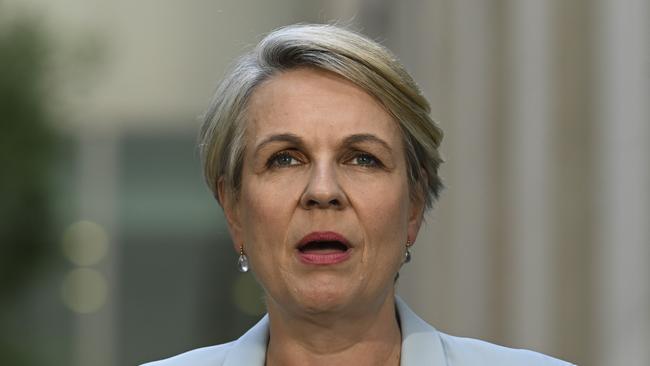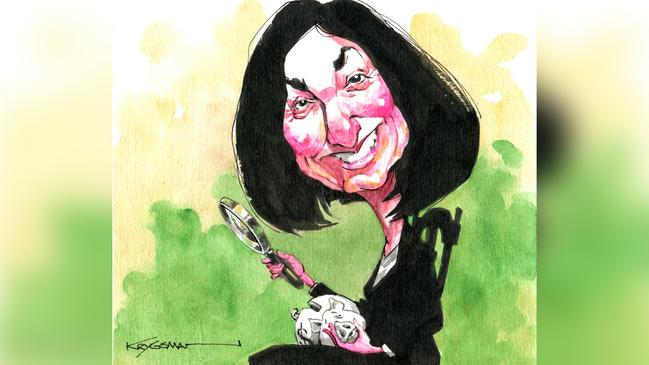
A recent pollination study found 40 per cent of US investors have put nature in their core investment strategy, double the 20 per cent in Australia.
But 61 per cent of Australian funds are alive to the opportunities presented, which explains why SLM Partners and Impact Ag Partners are launching a new $250m fund to invest in regenerative agriculture and carbon in Australia, with a target net rate of return of 9-10 per cent.
The fund, following the likes of Nigel Sharp’s Tiverton Agriculture, is raising money to buy farm properties in NSW to develop and boost carbon storage with regenerative farming techniques.
As the global talks continue to raise awareness, corporate Australia should be well aware of its new obligations.

Next week Tony Goldner, the chief executive of the Taskforce on Nature-related Financial Disclosures (TNFD), will be in Sydney to launch the Australian leg of his global tour, unveiling its nature financial disclosure guidelines.
The TNFD recommended disclosures are consistent with the approach of the ISSB (International Sustainability Standards Board) and its new reporting standards now under consideration by markets around the world.
The launch will be backed on video by Environment Minister Tanya Plibersek.
The Macdoch/government-backed task force, which is also supported by KPMG and Macquarie, earlier this year unveiled its framework for nature-based financial reporting, with company accounts to include nature-based risks to their operations, including those they create and the impact of nature on their business.
It comes as COP28 talks in Dubai enter their final week and as Treasurer Jim Chalmers hears superannuation funds are using renewable energy and housing issues as part of their campaign to water down the APRA-led performance tests. A super fund’s job is to maximise member returns, not save the country, so if Chalmers wants more housing or renewable investments his job is to come up with the right products – like that launched recently by SLM.
Leadership contest
Two years ago, when Peter Coleman left Woodside, Santos chief Kevin Gallagher was a potential candidate for the top job – at least that’s what he told his board, which resulted in a the award of a $6m equity retention payment.
If the proposed merger of the two companies proceeds, one assumes Meg O’Neill, who belatedly got the job at Woodside, would be the new boss, being younger and with a desirable low-key approach. But apart from the raft of home state rules around Santos in South Australia, social issues hold the key.
Wise advice
Almost 12 months to the day after Allens partner Michelle Levy handed her financial advice report to the government, it was formally endorsed by Assistant Treasurer Stephen Jones this week.
The government decision was broadly welcomed because it cut unnecessary red tape, created a new, less formal financial advisory network, supported digital advice and in principle supported Levy’s recommendation to drop the best financial interest test.
Her idea was that a superannuation fund or bank adviser falls under the employer’s banner, so if the advice is not in the customer’s best interest then it is the employer (AustralianSuper et al) who should be held to account.
Jones strangely failed to adopt the Levy recommendation that the definition of personal advice should be broadened to catch more errant businesses under the higher regulatory burden. Now, 31 years after the superannuation guarantee was introduced, the industry which has proved so successful at building member funds has no excuse for its abject failure in most cases to deliver effective retirement products.

That, after all, is what superannuation is for.
Financial advice is overhyped as the solution to financial mishaps, but governments dating back to the 1997 Stan Wallis review have searched for the right solution through periodic follow-up inquiries.
The starting point is transparency and to underline the basic principle of buyer beware, which means investors should not put greed ahead of caution and be responsible for their own investment decisions.
Jones says the law will be introduced into parliament by this time next year, so there are plenty of details to come.
Steel imports
Sanjeev Gupta’s Infrabuild and fellow steel monopoly BlueScope account for over 80 per cent of all Australian dumping complaints.
BlueScope was even forced to pay duty on its own dumping claim recently, when it suffered a Covid-era production shortfall in Australia.
Gupta is now back importing, chartering the ship Great Vanguard to bring in 25,000 tonnes of wire rod and reinforcing bar from Vietnamese mill Hoa Phat, with the boat leaving Vietnam on October 11 and landing 10,280 tonnes in Bisbane and 14,799 in Newcastle at between $US510 and $US520 a tonne.
Once landing fees are paid and converted into Aussie dollars, the shipment works out at around $900 a tonne for steel would be sold at about $1250 a tonne.
The shipment is worth watching, because next year Infrabuild is applying a new 600-grade reinforcing bar standard against the 500-grade award in today’s market, and as the company offers discounts to customers who don’t import the product, you wonder who will get its imported product.
Decision time
The ACCC next week is expected to approve Viva’s proposed $1.23bn acquisition of Peregrine’s OTR group, after Viva undertook to sell a large slice of the Adelaide convenience sites.
But it will probably block the ACL-Healius pathology merger despite the undertaking to sell some labs, and Woolworths’ acquisition of Petstock is lineball, even after divestments.
Separately, after AustralianSuper (by voting down the bid) saved the ACCC from the embarrassment of clearing the Brookfield bid to use Origin funds to buy some renewable energy, the spotlight turns to the Armaguard and Prosegur cash transport merger.
The case highlights the need for better co-ordination between regulators, and the lack of integration by the RBA, which regulates the payment system.
Since 2016 ATM numbers are down by 20 per cent, and since 2012 cash withdrawals have fallen by 40 per cent.
In June, the ACCC cleared the merger, in part to provide some stability in the market and to support regional markets relying on the parties to deliver cash.
Armaguard runs its own ATMs in competition with the banks as well as servicing the majors, Australia Post, Woolworths and Coles, with cash.
Cash withdrawals plummeted during Covid and haven’t recovered.
Already the Linfox-controlled Armaguard is complaining it is in trouble and needs a cash injection of $190m, which shows mergers are not always the answer.
The banks have successfully sought ACCC clearance to consult about how to handle the issue.
Separately, one of the ACCC’s more notable failures, back in 2017, was to grab the headlines by alleging cartel behaviour by ANZ and its investment bankers in a failed $2.5bn placement which left the underwriters holding $790m in stock. ASIC wanted to take ANZ to task for not disclosing the massive shortfall to the market, which was a more logical action, but its case was delayed until the ACCC matter was eventually dropped.
ASIC proceeded and won the case and on Friday a $900,000 penalty was levied against the bank.




EY figures that by being a nature-positive economy, Australia could boost national income by $47bn by 2050.